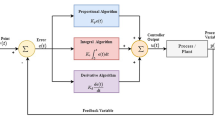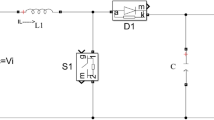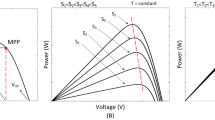Abstract
Based on the ant colony system (ACS) algorithm and fuzzy logic control, a new design method for optimal fuzzy PID controller was proposed. In this method, the ACS algorithm was used to optimize the input/output scaling factors of fuzzy PID controller to generate the optimal fuzzy control rules and optimal real-time control action on a given controlled object. The designed controller, called the Fuzzy-ACS PID controller, was used to control the CIP-I intelligent leg. The simulation experiments demonstrate that this controller has good control performance. Compared with other three optimal PID controllers designed respectively by using the differential evolution algorithm, the real-coded genetic algorithm, and the simulated annealing, it was verified that the Fuzzy-ACS PID controller has better control performance. Furthermore, the simulation results also verify that the proposed ACS algorithm has quick convergence speed, small solution variation, good dynamic convergence behavior, and high computation efficiency in searching for the optimal input/output scaling factors.
Similar content being viewed by others
References
ZIEGLER J G, NICHOLS N B. Optimum settings for automatic controllers[J]. ASME Transactions, 1942(65): 423–444.
HO W K, HANG C C, CAO L S. Tuning of PID controllers based on gain and phase margin in specifications[C]// GOODWIN G C, EVANS R J. The 12th IFAC World Congress. Sydney: IFAC, 1993: 267–270.
CHENG S L, HWANG C. Designing PID controllers with a minimum IAE criterion by a differential evolution algorithm[J]. Chemical Engineering Communications, 1998, 170(1): 83–115.
KWOK D P, SHENG F. Genetic algorithm and simulated annealing for optimal robot arm PID control[C]// FOGEL D B. The First IEEE Conference on Evolutionary Computation. Orlando: IEEE, 1994: 707–713.
KROHLING R A, REY J P. Design of optimal disturbance rejection PID controllers using genetic algorithms[J]. IEEE Transactions on Evolutionary Computation, 2001, 5(1): 78–82.
SOUKKOU A, KHELLAF A, LEULMI S. Genetic training of a fuzzy PID[C]// GENTO A M. The International Conference on Modelling and Simulation (ICMS’04). Valladolid, Spain: AMSE, 2004: 185–186.
XU Jing-wei, FENG Xin. Design of adaptive fuzzy PID tuner using optimization method[C]// The Fifth World Congress on Intelligent Control and Automation. Hangzhou, China: Zhejiang University, IEEE Society of Robotics and Automation, 2004: 2454–2458. (in Chinese)
ANZALONE A, IQLESIAS E, GARCIA Y, et al. A fuzzy logic controller with fuzzy scaling factor calculator applied to a nonlinear chemical process[J]. Revista Tecnica de la Facultad de Ingenieria Universidad del Zulia, 2003, 26(3): 189–196.
DORIGO M, BONABEAU E, THERAULAZ G. Ant algorithms and stigmergy[J]. Future Generation Computer Systems, 2000, 16(8): 851–871.
DORIGO M, GAMBARDELLA L M. Ant colony system: A cooperative learning approach to the traveling salesman problem[J]. IEEE Transactions on Evolutionary Computation, 1997, 1(1): 53–66.
TAN Guan-zheng, HE Huan, SLOMAN A. Global optimal path planning for mobile robots based on improved Dijkstra algorithm and ant system algorithm[J]. Journal of Central South University of Technology, 2006, 13(1): 80–86.
GÓMEZ J F, KHODR H M, de OLIVEIRA P M, et al. Ant colony system algorithm for the planning of primary distribution circuits[J]. IEEE Transactions on Power Systems, 2004, 5(2): 996–1004.
Author information
Authors and Affiliations
Corresponding author
Additional information
Foundation item: Project(50275150) supported by the National Natural Science Foundation of China; Project(20040533035) supported by the National Research Foundation for the Doctoral Program of Higher Education of China; Project(05JJ40128) supported by the Natural Science Foundation of Hunan Province, China
Rights and permissions
About this article
Cite this article
Tan, Gz., Dou, Hq. ACS algorithm-based adaptive fuzzy PID controller and its application to CIP-I intelligent leg. J Cent. South Univ. Technol. 14, 528–536 (2007). https://doi.org/10.1007/s11771-007-0103-3
Received:
Accepted:
Published:
Issue Date:
DOI: https://doi.org/10.1007/s11771-007-0103-3




